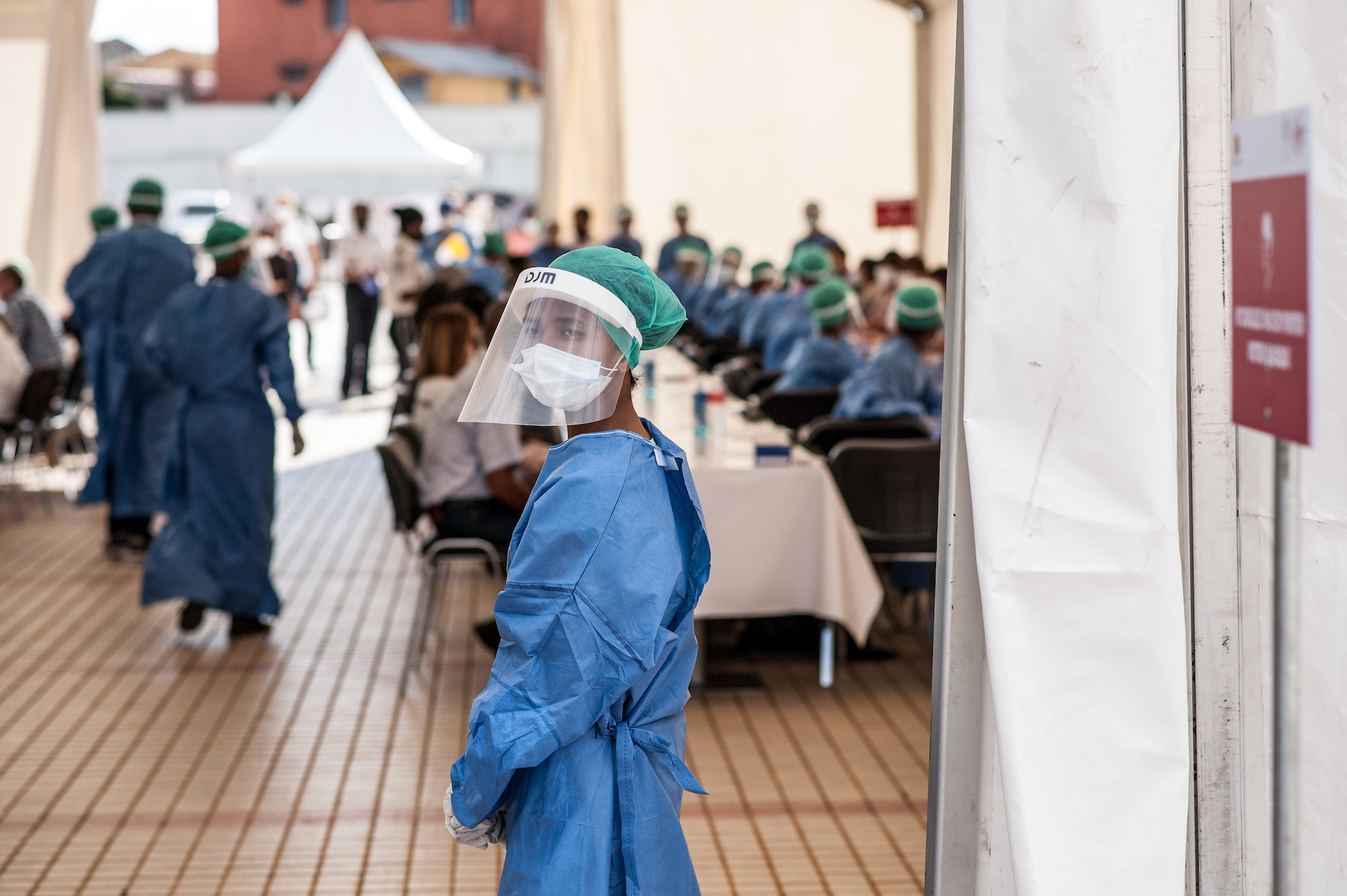
Alongside the mountain of related challenges, governments responding to the COVID-19 pandemic have found fake news and misinformation a frequent source of frustration. Some now refer to the wave of misinformation that has accompanied the coronavirus as a “disinfodemic.” Purveyors of fake news are disseminating propaganda and disinformation, which have increased panic among the public and slowed the progress of the fight against the pandemic.
The disinfodemic has led people to believe drinking alcohol or applying heat will kill the virus. Some have been led to believe that the virus only affects white people, that testing kits are contaminated, and that vaccines are being tested on Africans. Misinformation purveyors have made fake claims with falsified video evidence about arsons of Chinese-owned shops in Nigeria. These examples are just the tip of the iceberg.
Many governments have adopted and implemented strict measures to combat the disinfodemic, including warning or even arresting those spreading it. For example, in Mauritius, a man who falsely claimed that riots had erupted after the prime minister announced the closure of supermarkets and shops, was arrested under that country’s Information and Communication Technology Act.
In South Africa, authorities have arrested people who allegedly wrote fake articles saying the virus was being deliberately spread by foreigners from China and Japan. And in Kenya, a 23-year-old man was arrested after he published false information about the origin of the virus in that country.
But these strict controls are also affecting the freedom of expression of people on the continent. Even before COVID-19, many African countries used libel laws, defamation laws, and internet shutdowns to limit the freedom of expression of citizens and the media. Some examples include Cameroon, Ethiopia, Chad, Egypt, and Uganda.
The pandemic is now being used as an excuse to further limit freedom of expression. In Tunisia, for example, two bloggers who criticized their government’s response to COVID-19 were arrested, with Amnesty International saying they “must be immediately and unconditionally released.”
In Mauritius, a woman who published a sarcastic meme against the government was arrested for spreading fake news. And in countries such as Ethiopia, Egypt, Nigeria, Kenya, Somalia, and Zimbabwe, there are increasing numbers of arrests and attacks by law enforcement and security agencies on journalists covering the pandemic.
These incidents limit the freedom of expression of Africans and the African press. On World Press Day, May 3, U.N. Secretary General António Guterres emphasized the role of the press as “the antidote” to the disinfodemic: “verified, scientific, fact-based news and analysis.”
Since the outbreak of COVID-19, international organizations such as the World Health Organization and Human Rights Watch have adopted guidelines and checklists regarding the protection of human rights. That includes protecting freedom of expression as COVID-19 measures are implemented. There are also many laws at the global and regional level that require countries to uphold freedom of expression even in times of pandemics.
Many of the arrests and attacks being made by government officials in different African countries are contrary to international conventions. Article 19 of the International Covenant on Civil and Political Rights protects the universal freedom of expression but allows for certain limitations. Measures to contain fake news during COVID-19 are permissible under the mission of protecting public health. But these limitations do not apply when citizens simply critique the measures their governments and do not spread fake news.
The United Nations’ Special Rapporteur on Freedom of Opinion and Expression published a report last month on disease pandemics and freedom of opinion and expression. The report emphasizes that freedom of expression is critical to meeting the pandemic’s challenges. It says states must still apply the tests of legality, necessity, and proportionality before limiting freedom of expression even in cases of public health threats. This still allows for combating fake news so long as the impact on freedom of expression is minimal.
At the continental level, freedom of expression is protected by Article 9 of the African Charter on Human and Peoples’ Rights. The Special Rapporteur on Freedom of Expression and Access to Information in Africa recently issued a press statement expressing concerns about internet shutdowns in African countries in the time of COVID-19: “Any attempt by States to cut or restrict access to the internet, block social media platforms or other communications services, or slow down internet speeds, restricts the public’s access to health information that may be used not only to protect them from contracting the virus but also contain its spread.”
The statement says states should respect and protect of the right to freedom of expression and access to information through the internet and social media services, emphasizing that states must not use COVID-19 “to establish overreaching interventions.”
And the African Commission recently published its Revised Declaration on Principles of Freedom of Expression and Access to Information in Africa. It calls freedom of expression an indispensable component of democracy, stating that no one should “be found liable for true statements, expressions of opinion, or statements which are reasonable to make in the circumstances.”
The African Charter and the International Covenant on Civil and Political Rights are binding on all African states except Morocco and South Sudan, respectively. All of these agreements expect African nations to protect freedom of expression even in times of a pandemic.
African states should adopt regulations that clearly define what constitute fake news in relation to COVID-19. They must allow the citizens and the media to express themselves. The measures being taken by governments in response to COVID-19 must be debated without fear of frivolous charges.Finally, African governments must not use pandemic fake news as a shield to violate the freedom of expression of its citizens — or settle old scores with the press.
Ashwanee Budoo is program manager of the master’s program in human rights and democratization in Africa at the University of Pretoria’s Centre for Human Rights. This article is republished from The Conversation under a Creative Commons license.![]()